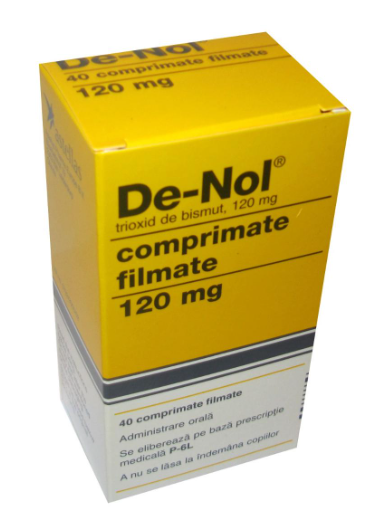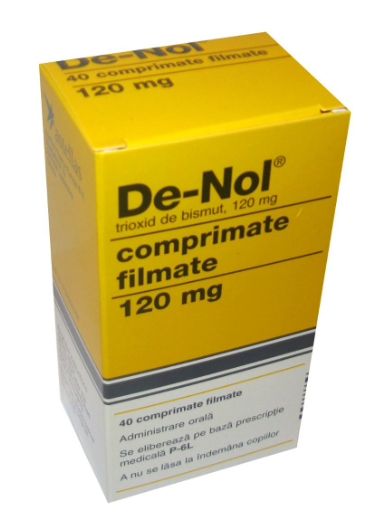Bismuth Subcitrate
Welcome to Dwaey, specifically on Bismuth Subcitrate page.
This medicine contains important and useful components, as it consists of
Bismuth Subcitrate is available in the market in concentration.
Generic Name of Bismuth Subcitrate - Learn More
Bismuth Subcitrate
Bismuth Subcitrate Precaution - What You Need to Know
Bismuth subcitrate should be used with caution in individuals with a history of gastrointestinal bleeding, ulcers, or any other active GI conditions. While generally well-tolerated, it can cause discoloration of the stool or tongue, which is harmless but may be alarming to patients. Bismuth subcitrate can also affect kidney function, so it should be used with caution in patients with pre-existing kidney disease or renal insufficiency. Monitoring of renal function may be necessary in these individuals, particularly during prolonged treatment. Pregnant and breastfeeding women should consult with their healthcare provider before using bismuth subcitrate, as it is not well-studied in these populations. Long-term use should be avoided, as bismuth compounds have the potential to accumulate in the body, leading to toxicity, particularly in the kidneys. Additionally, caution should be exercised when using bismuth subcitrate in combination with other medications, such as antacids or anticoagulants, as interactions may affect its efficacy or lead to unwanted side effects.
Bismuth Subcitrate Indication - Uses and Benefits
Bismuth subcitrate is primarily indicated for the treatment of peptic ulcers, particularly those caused by *Helicobacter pylori* infections. It works as part of combination therapy for eradication of *H. pylori* in patients with gastric ulcers or duodenal ulcers. This compound is often included in multi-drug regimens, typically alongside antibiotics and proton pump inhibitors (PPIs), to increase the effectiveness of treatment. Bismuth subcitrate helps by coating the ulcer and protecting it from stomach acid, which promotes healing. Additionally, it has mild antimicrobial properties that help suppress *H. pylori*, further contributing to ulcer healing. Off-label, bismuth subcitrate is sometimes used in combination with other agents to treat other gastrointestinal conditions where ulceration or inflammation occurs, though its use outside of *H. pylori* eradication therapy should be considered only under the guidance of a healthcare provider. The medication may also serve as part of a broader treatment plan for dyspepsia or gastritis.
Bismuth Subcitrate Contraindications - Important Warnings
Bismuth subcitrate is contraindicated in patients with known hypersensitivity to bismuth-containing products or any component of the formulation. It is also contraindicated in individuals with active gastrointestinal bleeding, as the therapeutic effect of bismuth subcitrate may mask symptoms or interfere with proper diagnosis and treatment. Patients with severe renal impairment should avoid using bismuth subcitrate due to the risk of bismuth accumulation and toxicity, which can lead to renal failure and neurotoxicity. Bismuth subcitrate should not be used in combination with other bismuth-containing products to prevent the risk of overdose. Children under the age of 12 should not use this medication unless explicitly directed by a healthcare provider. Pregnant women should avoid its use unless absolutely necessary, as there is insufficient data on its safety during pregnancy. Long-term use is not recommended due to the potential for bismuth toxicity, including renal damage and encephalopathy.
Bismuth Subcitrate Side Effects - What to Expect
Bismuth subcitrate is generally well tolerated, but it can cause some side effects, especially with prolonged use or high doses. The most common side effect is harmless blackening of the stool or tongue, which occurs due to the bismuth in the medication. While this may be concerning for some patients, it is not a sign of any serious issue and resolves once the medication is stopped. Less commonly, some patients may experience nausea, vomiting, or abdominal discomfort. Rare but serious side effects include allergic reactions (such as rash, itching, or swelling) and neurotoxicity, particularly with prolonged use or high doses. Symptoms of neurotoxicity can include confusion, memory loss, or other cognitive changes, particularly in patients with renal impairment or those receiving long-term treatment. In very rare cases, bismuth subcitrate has been associated with a condition known as "bismuth encephalopathy," which can lead to confusion and tremors. If any severe side effects occur, it is crucial to discontinue the medication and seek immediate medical attention. Monitoring kidney function during long-term therapy is advisable to avoid potential toxicity.
Bismuth Subcitrate Mode of Action - How It Works
Bismuth subcitrate works through several mechanisms to aid in the healing of gastric ulcers and to help eradicate *Helicobacter pylori* infection. The primary action of bismuth subcitrate is its ability to form a protective coating over the ulcerated area in the stomach or duodenum, which shields the ulcer from gastric acid and digestive enzymes, promoting healing. This protective barrier also prevents further damage from acid reflux or peptic enzymes. Additionally, bismuth subcitrate has mild antimicrobial properties and can inhibit the growth of *H. pylori*, the bacterium responsible for many peptic ulcers. By reducing *H. pylori* load, it helps enhance the effectiveness of other antibiotics used in combination therapy. The compound also neutralizes stomach acid to a small extent, which can reduce irritation to the ulcer and provide relief from symptoms such as pain or discomfort. The combined effect of these mechanisms makes bismuth subcitrate an effective agent in the treatment of peptic ulcers, especially when used as part of a multi-drug regimen.
Bismuth Subcitrate Drug Interactions - What to Avoid
Bismuth subcitrate can interact with a variety of medications and substances, potentially affecting their absorption or efficacy. It may reduce the absorption of certain antibiotics, particularly tetracyclines, due to the binding of the bismuth to these drugs, which can diminish their effectiveness. Similarly, bismuth subcitrate may interfere with the absorption of other medications such as digoxin, a medication used for heart conditions, and some antacids. Additionally, the use of bismuth subcitrate in combination with anticoagulants (e.g., warfarin) should be done with caution, as it may increase the risk of bleeding due to changes in platelet function. Patients should avoid taking antacids or other gastrointestinal agents that affect stomach acidity too soon before or after taking bismuth subcitrate, as the altered pH may impact its effectiveness. Alcohol consumption is generally not contraindicated but should be limited, as it can exacerbate gastrointestinal issues. It is important for patients to inform their healthcare provider about all medications, including over-the-counter drugs and supplements, to avoid any harmful interactions.
Bismuth Subcitrate Adult Dose - Recommended Dosage
The standard adult dose of bismuth subcitrate for the treatment of peptic ulcers or *H. pylori* eradication is typically 120 mg four times a day, taken with food. This dosage is usually part of a combination therapy regimen that includes two antibiotics (e.g., clarithromycin and amoxicillin or metronidazole) and a proton pump inhibitor (PPI) to help optimize the treatment of the infection and facilitate ulcer healing. The duration of therapy is typically 10 to 14 days, depending on the severity of the condition and the physician’s recommendations. It is important to follow the prescribed dosage closely to ensure effectiveness and avoid the potential for side effects, including toxicity from bismuth accumulation. Long-term use of bismuth subcitrate is not recommended, and it should only be used as part of a short-term treatment plan for peptic ulcers or *H. pylori* eradication.
Bismuth Subcitrate Child Dose - Dosage for Children
Bismuth subcitrate is typically not recommended for use in children under 12 years old unless directed by a healthcare provider. For pediatric patients aged 12 years and older, the dose is generally similar to that used in adults, often part of a combination therapy for *H. pylori* eradication. The usual dose is 120 mg four times a day, taken with meals. However, the exact dosage and treatment regimen should be determined by a pediatrician based on the child’s condition and weight. Long-term use or overdose of bismuth subcitrate in children can lead to toxicity, particularly affecting the kidneys and nervous system, so it is crucial that this medication is used under strict medical supervision. Children should be monitored for any signs of adverse effects, and alternative therapies should be considered if side effects or toxicity occur.
Bismuth Subcitrate Renal Dose - Dosage for Kidney Conditions
For patients with renal impairment, the use of bismuth subcitrate requires caution. Although bismuth subcitrate itself does not undergo significant renal excretion, patients with impaired kidney function are at greater risk of bismuth accumulation in the body, leading to potential toxicity. In cases of moderate or severe renal impairment, the dose of bismuth subcitrate should be adjusted, and renal function should be closely monitored during treatment. If a patient experiences signs of toxicity, such as confusion, tremors, or neurological disturbances, bismuth subcitrate should be discontinued immediately, and appropriate treatment should be initiated. The healthcare provider may recommend avoiding bismuth subcitrate or considering an alternative treatment for *H. pylori* eradication or ulcer management if renal function is significantly impaired.


